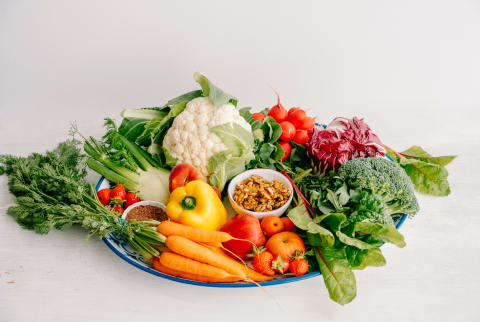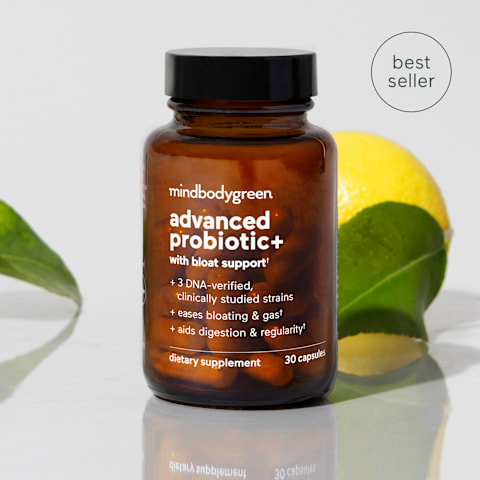Advertisement
4 Nutrition Tips For Better Vaginal Health, From An OB/GYN


You probably know that what you eat directly affects your gut health and metabolism but not many people realize what an important role your diet plays in other measures of health—including vaginal health.
"Believe it or not, your vagina, like everything else, can be affected by your diet," says board-certified OB/GYN and functional medicine practitioner Sarah de la Torre, M.D.
With this in mind, here are a few of de la Torre's favorite ways to start eating for a healthier vagina:
But first, water
Water is essential to vaginal health. "Drinking an adequate amount of water helps maintain hydration throughout your body, including the vaginal tissues," de la Torre says.
"It can also help prevent urinary tract infections (UTIs)1 by flushing out bacteria," she adds.
Consider this your cue to invest in a water bottle you love, add some fruit to your water for extra flavor, or try another strategy to help you drink more water daily.
Eat probiotic-rich foods
Since your gut microbiome and vaginal microbiome are interconnected, treating your gut with love using probiotics will benefit your vaginal health in turn as well.
"Added sugars can potentially disrupt the balance of healthy bacteria in the vagina and increase the risk of yeast infections," de la Torre says.
To refuel with good bacteria, add foods like pickled vegetables and beverages like kombucha to your grocery list, or take a daily probiotic supplement.
Prioritize omega-3s, too
"Omega-3 fatty acids, found in fatty fish (such as salmon and sardines), flaxseeds, and chia seeds, have anti-inflammatory properties that can benefit vaginal health," de la Torre says.
By reducing inflammation2 in the body, omega-3 fats help support healthy vaginal tissue.
Psst...they've also been shown to boost skin hydration in clinical studies3, among other full-body benefits.
Remember: Variety is essential
"Consuming a variety of nutrient-rich foods is important for overall health, including the health of your reproductive system," de la Torre notes.
So while probiotics and omega-3s are great to include in your diet, try to pull them from a variety of sources to ensure you're getting a range of nutrients. This will also help keep your home cooking interesting.
Torre emphasizes a balanced diet consisting of fruits, vegetables, whole grains, lean proteins, and healthy fats. In other words, eat the rainbow—your vagina will appreciate it.
The takeaway
You heard the OB/GYN: Your diet plays a role in your overall vaginal health. So be sure to drink enough water, eat probiotics daily, prioritize omega-3s, and consume a variety of fruits and vegetables. Here, a few more ways to support your vaginal health daily.

